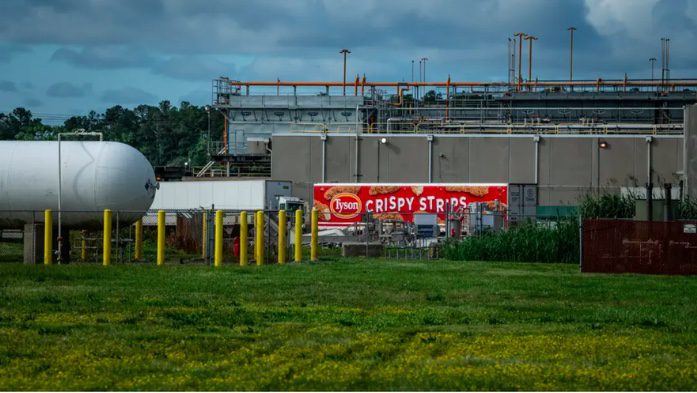
Audits are Not the Answer: Four Labor Approaches to Eliminating Child Labor on U.S. and Global Supply Chains
Darigold processes milk from Northwest dairy farms where children were found to be working in violation of labor laws. Credit:Ruth Fremson/NYT
The New York Times series on child labor exposes the failureof the self-regulatory, private audit system to root out child labor, even when it is right under their noses. Hannah Dreier’s reporting digs deeps into this broken system that increasingly leaves children seriously injured, or worse, while corporations feign ignorance or act with impunity.
While it is important to expose the damage done when corporations regulate themselves, we must also be clear-eyed about the role that audits can play in stopping child labor and other worker abuses in global supply chains. The focus on audits–from the time of day they are performed to the auditor’s ethics–will not get to the heart of the problem. Audits ultimately fail to root out migrant child labor in the U.S., just as audits have not been effective at rooting out wage theft, gender-based violence, and many other labor abuses in the global supply chain.
Audits are largely voluntary in nature and the sole regulatory mechanism of many industries. Audits often exist as part of corporations’ attempts to self-regulate their supply chains and evade collaboration or accountability towards other actors in the supply chains, including workers and trade Unions. Audits provide CSR talking points for shareholders but do little to give workers the power to improve their jobs and hold their employers accountable. The global supply chain has long demonstrated the limits of auditing to get at gender-based violence and harassment, wage theft, child labor, and other labor abuses. While the recent resurgence of child labor in the U.S. is alarming, it is the tip of the iceberg for child labor and other forced labor abuses in global supply chains. Unions and other labor rights organizations around the world have plenty of experience fighting against these abuses, and the real solution is clear: global brands must be accountable to the workers (and their unions) in their supply chains.
